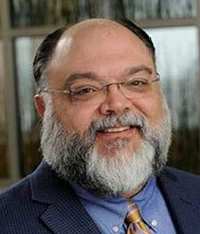INSIDE THE ISSUE
> Graduate Nurses
> Affirmative Action and Healthcare
> BORIM on Licensing
> American Academy of Nursing Fellows
>Transition
MONDAY REPORT
R.N.s on Workforce: Allow Graduate Nurses to Practice

Submitting testimony were (clockwise from top left) Joanne Fucile, Spaulding Hospital Cambridge; Patricia Samra, Baystate Health; Melissa Tuomi, UMass Memorial HealthAlliance-Clinton Hospital; and Sarah Sjostrom, Hebrew Rehabilitation Center at NewBridge on the Charles.
Currently in Massachusetts a recent graduate of a nursing program or nursing students in their last semester of study can get real-life, patient care experience at the bedside while under the direct supervision of a licensed healthcare provider. That hands-on experience not only assists the recent graduate or senior student but is a necessity for healthcare facilities facing unprecedented workforce shortages and needing every hand on board to assist in patient care.
The ability to employ soon-to-be-nurses – while they wait out often lengthy exam and licensure processes – was a flexibility put in place during the pandemic. This March, Governor Healey signed an appropriations bill that contained a provision to extend the flexibility to March 31, 2024. Last Thursday, a group of nursing and quality of care leaders from Massachusetts hospitals testified at a Joint Committee on Public Health hearing in favor of H.3613, An Act to improve healthcare development through graduate nursing practice that would erase the March 31 deadline and allow the new nurse flexibility to stand.
H.3613 still requires graduate nurses to take the National Council for Licensure Exam-RN (NCLEX-RN), and they still must be licensed through the Board of Registration in Nursing. But rather than wait for the tests to be scheduled and BORN to make decisions, H.3613 allows the new nurses to get to work immediately under strict supervision. The bill is just one of the workforce-related reforms MHA and its members are promoting this legislative session.
“The gap between nursing experience and the complexity of nursing care is growing,” testified Melissa Tuomi, the senior director of Quality, Safety, and Regulatory at UMass Memorial HealthAlliance-Clinton Hospital. “It is accelerating most rapidly in the northeast due to significant retirements within our workforce. New England is noted to have the oldest R.N.s in the U.S. and a projected decline in the size of the nursing workforce relative to overall population growth over the next decade. Academic preparation does not fully prepare one for independent practice. In my roles, I’ve seen that graduate nurse practice adds time to master new skills such as safely managing a multi-patient assignment. With ‘training wheels,’ House Bill 3613 offers the graduate nurse much more time to practice these essential skills.”
Tuomi added that a majority of states – including nearby Connecticut and New Hampshire – permit graduate nurse practice. Prior to the pandemic-time flexibility, nurses who were looking to “practice quickly” would accept offers from Massachusetts providers and later decline if they were offered positions in a “pre-licensure” state, Tuomi said. According to Patricia Samra, R.N., vice president of HR Operations & Total Rewards at Baystate Health, the pre-licensure arrangement has helped the system improve its graduate nurse retention from 70% before the pandemic to 92% last year.
Sarah Sjostrom, R.N., associate chief nursing officer and vice president of Ancillary Services at Hebrew Rehabilitation Center at NewBridge on the Charles, said employing graduate nurses is especially beneficial to post-acute care facilities. Historically, acute care hospitals have always been able to attract nurses away from the post-acutes and other care settings. This has affected not only employment within post-acute facilities, but has also contributed to the “throughput” problem whereby patients face delays in being transferred out of acute care settings.
“Any efforts, such as those in this bill, to reduce the barriers to capable graduates entering the workforce in a controlled and supported way, will help support all levels of care and the safe transition of patients across the care continuum,” Sjostrom said. She added that putting graduate nurses to work immediately also helps them financially in their transition from student to working nurse. “For students that already have difficulty ensuring their financial security while studying, [the current graduate nurse flexibility] has been vital to their success to transition to a job without a significant gap,” she said.
“With an estimated 19,000 job vacancies in Massachusetts hospitals alone, our healthcare system is in need of immediate, proven solutions,” said Steve Walsh, MHA’s president and CEO. “This emergency measure turned out to be a home run for patient care, and it is now a long-term solution that we can confidently adopt. The past three-plus years have left no doubt: nursing school seniors and recent graduates are an essential and highly capable part of our workforce.”
Walsh commended the Healey-Driscoll Administration for extending the flexibility through next March, and asked the legislature to make the change permanent through passage of H.3613.
Supreme Court’s Decision Seen as Having Negative Effect on Healthcare
The U.S. Supreme Court’s decision to strike down race-conscious college admissions policies (Students for Fair Admissions, Inc. v. President and Fellows of Harvard College) generated much attention on how the ruling would affect the ability of higher education institutions to guarantee more inclusive schools.
But since the June 29 decision, attention has focused on how the 6-3 court ruling would affect specific types of educational programs, such as those educating the next generation of physicians, nurses, and other caregivers.
“This ruling restricts medical schools from considering race and ethnicity among the multiple factors in admissions policies and will translate into a less diverse physician workforce,” said Jesse Ehrenfeld, M.D., president of the American Medical Association.
“Today’s decision demonstrates a lack of understanding of the critical benefits of racial and ethnic diversity in educational settings and a failure to recognize the urgent need to address health inequities in our country,” the Association of American Medical Colleges stated, while the American Association of Colleges of Nursing said, “Removal of racial considerations oppresses people of color and puts the onus on colleges to develop race-neutral programs that advance diversity.”
MHA Board of Trustee member Dr. Joseph Betancourt, formerly of Mass General Brigham and now president of the Commonwealth Fund, last week wrote in his blog, “The consideration of race does not come at the expense of excellence or merit; race is not a proxy for lower achievement or less potential. Consideration of various characteristics and lived experiences provides the opportunity to identify untapped potential and provide more people the opportunity to benefit from educational advancement.” Betancourt chairs the board’s Standing Committee on DHE&I.
MHA concurs with its peers in the medical space. The association and its membership are engaged, individually as well as in coordinated efforts, to address issues of diversity and health equity throughout the Massachusetts healthcare system. This includes an increased focus around building a base of workers that reflects the diversity of their patient populations.
“Representation doesn’t just matter; it is essential for healthy lives,” said Izzy Lopes, MHA’s vice president, Health Equity. “We know – through countless volumes of research and lived experience – that patient outcomes are best when doctors, nurses, and caregivers are representative of the communities they serve. If the schools training the next generation of healthcare professionals cannot account for diversity in their admissions processes, we fear that patients will be the ones who suffer most.
“Affirmative Action has also afforded countless Black, Indigenous, and people of color (BIPOC) healthcare opportunities they otherwise may not have enjoyed – including the ability to enter medical professions and to contribute to advancements and innovations in health and science. We believe the voices and lived experience of BIPOC individuals must continue to be elevated. And we believe in dismantling the structures that create barriers to opportunity and that unfairly disadvantage these individuals. The healthcare profession, by its very nature, should be accessible to all who are willing to pursue these opportunities.”
MHA said that in light of the ruling it will continue to work with its partners in higher education to ensure people of all backgrounds have the opportunity to enter the healthcare field.
BORIM Releases Amended Guidance on Licensing
As recently reported, the Board of Registration in Medicine (BORIM) announced that the temporary licenses for physicians issued during the COVID-19 pandemic will end on September 30, 2023. Now, BORIM has issued additional licensing guidance.
BORIM Policy 2022-01 allows holders of limited physician licenses to engage in “internal moonlighting,” which means they can care for patients outside of the limited licensee’s specialty training program. The licensees must be under a faculty member’s guidance and must follow ACGME (Accrediting Council of Graduate Medical Education) guidelines relating to moonlighting, among other conditions.
Another amended BORIM directive, 91-03, clarifies the procedure whereby graduates of foreign medical schools can submit a waiver from BORIM’s rules requiring equivalency to U.S. medical school education before a limited license is issued. Policy 91-01 sets up the same process for those seeking full licenses.
Congratulations to American Academy of Nursing 2023 Fellows
The American Academy of Nursing has named its 2023 Class of Fellows – nurse leaders recognized for their “substantial, sustained, and outstanding impact on health and healthcare.”
The leaders were selected from 40 states, D.C., and 13 countries, and include the following from Massachusetts:
- Nancy Gaden, Boston Medical Center (and a member of the MHA Board of Trustees);
- Lucinda Canty, University of Massachusetts Amherst Elaine Marieb College of Nursing;
- Gabrielle Abelard, Abelard Psychotherapy Mental Health Clinic & University of Massachusetts-Amherst Elaine Marieb College of Nursing;
- Vanessa Battista, Dana-Farber Cancer Institute;
- Suellen Breakey, MGH Institute of Health Professions;
- Rebecca Hill, MGH Institute of Health Professions;
- Favorite Iradukunda, University of Massachusetts-Amherst Elaine Marieb College of Nursing;
- Brenna Morse, MGH Institute of Health Professions;
- Kimberly Noonan, Dana-Farber Cancer Institute;
- Monica O’Reilly-Jacob, Boston College Connell School of Nursing;
- Anne Pohnert, CVS Health MinuteClinic;
- Margie Sipe, MGH Institute of Health Professions;
- Margaret Sullivan, Boston Health Care for the Homeless & FXB Center for Health & Human Rights at Harvard
The fellows will be formally recognized at the Academy’s annual Health Policy Conference, taking place on October 5 – 7 in Washington, D.C.
Transition

Effective immediately, John Whitlock, Jr., has been named CEO of MetroWest Medical Center (MWMC), which includes Framingham Union Hospital and Leonard Morse Hospital.
Whitlock has served as interim CEO for the past six months and CFO of Saint Vincent Hospital and the Massachusetts market for more than two years. The facilities are part of the Tenet Health system. Before his time with Saint Vincent Hospital and MetroWest Medical Center, Whitlock spent three years with Central Maine Healthcare, as vice president of finance and as chief financial officer.
Whitlock earned his Bachelor of Business Administration, Finance from Emory University in Atlanta, and his master’s in accounting from Louisiana State University.

 Massachusetts Health & Hospital Association
Massachusetts Health & Hospital Association 